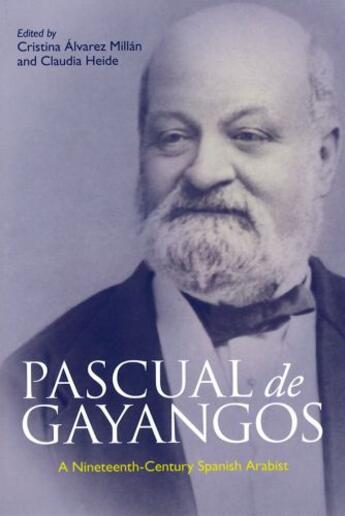Des idées de lecture pour ce début d'année !
Passionné(e) de lecture ? Inscrivez-vous
gratuitement ou connectez-vous pour rejoindre la
communauté et bénéficier de toutes les fonctionnalités du site !

Pascual de Gayangos (1809-97) celebrated Spanish Orientalist and polymath, is recognised as the father of the modern school of Arabic studies in Spain. He gave Islamic Spain its own voice, for the first time representing Spain's 'other' from 'within' not from without. This collection, the first major study of Gayangos, celebrates the 200th anniversary of his birth.Covering a wide range of subjects, it reflects the multiple fields in which Gayangos was involved: scholarship on the culture of Islamic and Christian Spain; history, literature, art; conservation and preservation of national heritage; formation of archives and collections; education; tourism; diplomacy and politics. Amalgamating and understanding Gayangos's multiple identities, it reinstates his importance for cultural life in nineteenth-century Spain, Britain and North America.It is also argued that Gayangos's scholarly achievements and his influence have a political dimension. His work must be seen in relation to the quest for a national identity which marked the nineteenth century: what was the significance of Spain's Islamic past, and the Imperial Golden Age to the culture of modern Spain? The chapters, informed by post-colonial theory, reception theory and theories of national identity, uncover some of the complexities of the process that shaped Spain's national identity. In the course of this book, Gayangos is shown to be a figure with many facets and several intellectual lives: Arabist, historian, liberal, researcher, editor, numismatist, traveller, translator, diplomat, perhaps a spy, a generous collaborator and one of Spain's greatest bibliophiles.
Il n'y a pas encore de discussion sur ce livre
Soyez le premier à en lancer une !

Des idées de lecture pour ce début d'année !

Si certaines sont impressionnantes et effrayantes, d'autres sont drôles et rassurantes !

A gagner : la BD jeunesse adaptée du classique de Mary Shelley !

Caraïbes, 1492. "Ce sont ceux qui ont posé le pied sur ces terres qui ont amené la barbarie, la torture, la cruauté, la destruction des lieux, la mort..."